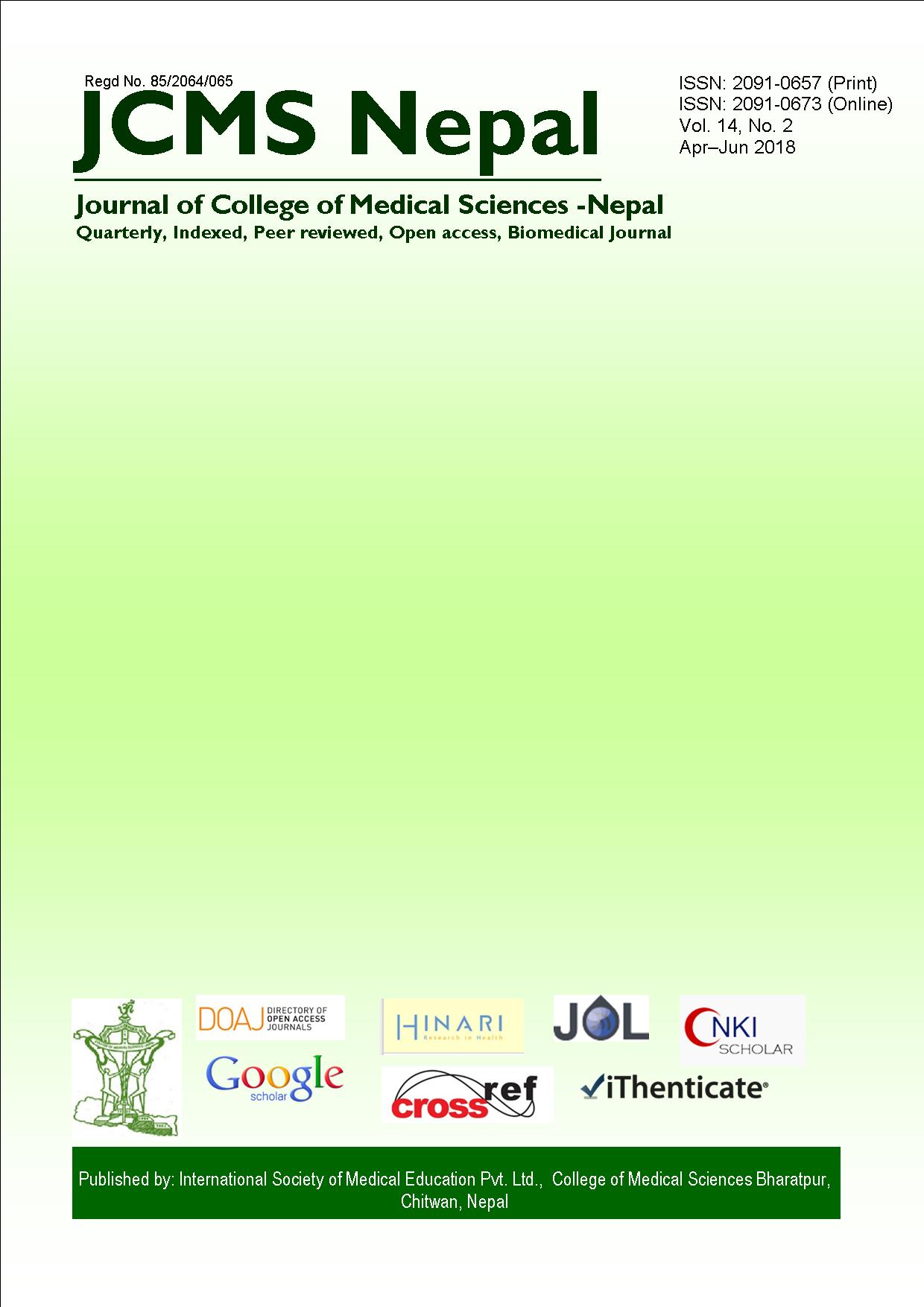Study of outcome of patients sustaining depressed skull fracture following blunt head trauma
DOI:
https://doi.org/10.3126/jcmsn.v14i2.19913Abstract
ABSTRACT
Background: One of the common neurosurgical conditions is depressed skull fracture. It could be simple or compound type. This study aims to assess the outcome of the patients with depressed skull fracture.
Material and Methods: Retrospective cohort study of the patients admitted with depressed skull fracture after sustaining blunt head trauma was done. Data were collected with regard to age, sex, mode of injury, time delay, Glasgow coma scale (GCS), epilepsy, focal neurological deficit, CT scan findings, treatment given, infection and Glasgow outcome scale (GOS).
Results: Total of 50 patients were included, of which 68% were male and 32% were female with mean age of 21.02 ± 18.78 years. Fall was the commonest mode of injury constituting 60% of patients, 80% of the patients presented within 12 hours of injury and 86% of them sustained mild head injury. Fracture was of compound type in 56% and simple type in 44%. Wound debridement and suturing was performed in 26% and Craniotomy and elevation was done in 42%. Dural tear was observed in 47% who were operated. Early epilepsy was seen in 4% and late epilepsy in 2% and infection rate of 2%. Outcome was Favorable in 98% patients. Significant correlation noted between admission GCS with GOS (p=0.006) whereas no correlation was seen between time of presentation with infection (p=0.09).
Conclusion: Mild head injury was the commonest form of presentation. Most of the patients have unfavorable outcome and with low risk of infection and epilepsy. Good admission GCS correlated with favorable outcome.
Keywords: blunt head trauma; depressed skull fracture; epilepsy; infection; outcome.
Downloads
Downloads
Published
How to Cite
Issue
Section
License
This license enables reusers to copy and distribute the material in any medium or format in unadapted form only, for noncommercial purposes only, and only so long as attribution is given to the creator.




